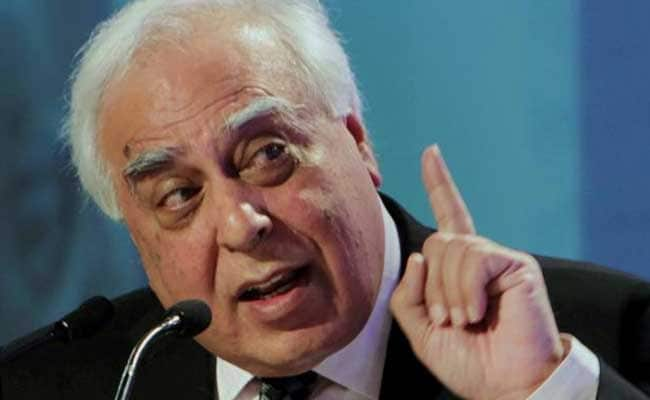
Kapil Sibal is representing the All India Muslim Personal Law Board (AIMPLB) in the triple talaq case.
New Delhi:
In the middle of a serious discussion on triple talaq in the Supreme Court on Tuesday, Muslim law board's counsel Kapil Sibal was vociferously defending the 1,400 year old practice that he insisted had its origin in Hadith, the compilation of Prophet Muhammad's words and acts. And then came the bouncer from the judges. "Is e-talaq also there?" the court asked.
Till then, it seemed to have gone perfectly for the Congress leader and senior lawyer appearing for the All India Muslim Personal Law Board in the top court. Mr Sibal had just argued that triple talaq was a matter of faith and belief that the court should not interfere in, and the "Messenger of Allah and his companions did talk about triple talaq".
The idea was to establish that the practice of instant divorce for Muslim men was intrinsic to the religion; the court had made it clear right at the beginning that if the court concluded that it was, then it would adopt a hands-off approach.
"Yes...WhatsApp talaq... it is encrypted too," Mr Sibal responded jokingly. The courtroom broke into laughter, the judges a smile.
A law minister in the previous UPA regime, the 68-year-old senior Congress leader returned to active law practice after Prime Minister Narendra Modi came to power in May 2014.
One of his clients is WhatsApp that is facing a legal challenge over privacy concerns after Facebook bought the messaging system too. As counsel for WhatsApp, Mr Sibal has argued in the past that the messaging system used encryption technology that did not even let the company read messages sent by its customers.
But e-talaq is something that even the Congress has been reluctant to defend. "SMS, email & other means which are used to give talaq have no meaning... This is not written in Quran," Congress leader Randeep Singh Surjewala said.
Till then, it seemed to have gone perfectly for the Congress leader and senior lawyer appearing for the All India Muslim Personal Law Board in the top court. Mr Sibal had just argued that triple talaq was a matter of faith and belief that the court should not interfere in, and the "Messenger of Allah and his companions did talk about triple talaq".
The idea was to establish that the practice of instant divorce for Muslim men was intrinsic to the religion; the court had made it clear right at the beginning that if the court concluded that it was, then it would adopt a hands-off approach.
"Yes...WhatsApp talaq... it is encrypted too," Mr Sibal responded jokingly. The courtroom broke into laughter, the judges a smile.
A law minister in the previous UPA regime, the 68-year-old senior Congress leader returned to active law practice after Prime Minister Narendra Modi came to power in May 2014.
One of his clients is WhatsApp that is facing a legal challenge over privacy concerns after Facebook bought the messaging system too. As counsel for WhatsApp, Mr Sibal has argued in the past that the messaging system used encryption technology that did not even let the company read messages sent by its customers.
But e-talaq is something that even the Congress has been reluctant to defend. "SMS, email & other means which are used to give talaq have no meaning... This is not written in Quran," Congress leader Randeep Singh Surjewala said.
Track Latest News Live on NDTV.com and get news updates from India and around the world

